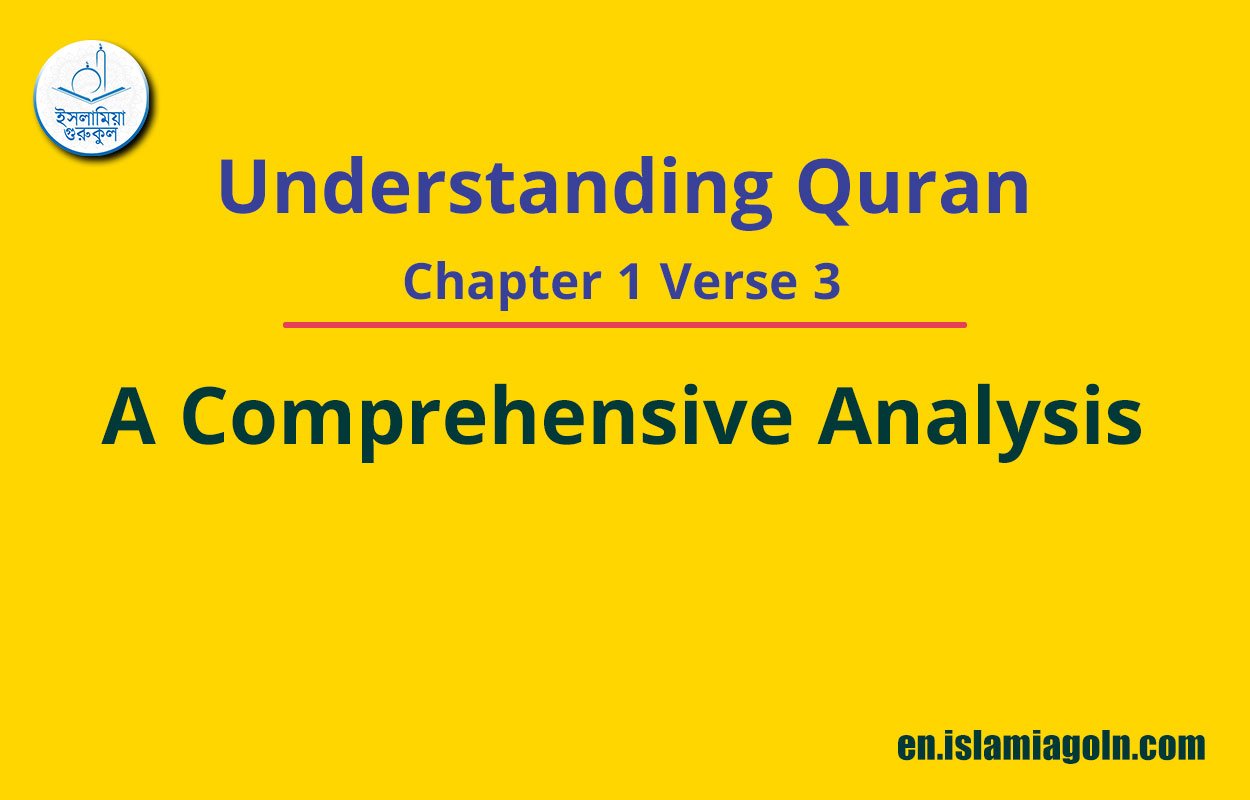Quran Chapter 1 Verse 3: Chapter 1 of the Quran, known as Surah Al-Fatiha (The Opener), is a vital part of the Muslim’s daily prayer and a cornerstone of Islamic worship. Comprised of just seven verses, Al-Fatiha is a beautifully concise yet profound surah. This article focuses on Verse 3, deeply exploring its meaning and significance.
Quran Chapter 1 Verse 3

The Verse
Let’s start by stating the verse itself:
“The Most Gracious, the Most Merciful.”

Interpretation and Meaning
These words form a phrase that is repeated many times in the Quran, capturing two of the key attributes of Allah: His infinite Mercy (Ar-Rahim) and His infinite Grace (Ar-Rahman).
Ar-Rahman, translated as ‘the Most Gracious’, derives from the root word ‘rahmah’ which means womb. This alludes to a nurturing, sustaining kind of mercy and grace that is ever present and all-encompassing. It is similar to the kind of nurturing care that a mother extends to her child. This attribute is universal and benefits all creatures indiscriminately.
Ar-Rahim, on the other hand, signifies a more specific, intensive form of mercy that is especially reserved for the believers on the Day of Judgment. It is interpreted as ‘the Most Merciful’, an enduring, compassionate mercy that believers will experience in the Hereafter.

Context and Relevance
The third verse of Al-Fatiha serves as a crucial reminder to all those who recite it of Allah’s boundless mercy and grace. By reflecting on this verse, believers affirm their understanding and acceptance of these attributes of God, which plays a central role in shaping their relationship with Him.
In the context of prayer, this verse acts as a comfort and reassurance. It reminds Muslims that, regardless of their trials and tribulations, they are always under the care of a Gracious and Merciful Creator. This verse fosters hope and encourages repentance, as believers are reassured of Allah’s infinite mercy, ready to envelope them should they sincerely seek it.
In the broader context of the Quran, the phrase “The Most Gracious, the Most Merciful” also serves as a lens through which the subsequent verses are to be understood. The divine teachings and laws that are set out in the Quran are not meant to be restrictive or burdensome, but are, in fact, a manifestation of Allah’s mercy and grace. They are intended to guide humanity towards the path of ultimate good and success.

Verse 3 of Surah Al-Fatiha is more than just an acknowledgement of Allah’s attributes of being ‘the Most Gracious’ and ‘the Most Merciful’. It serves as a continuous reminder to Muslims of His ever-present mercy and grace. This understanding imbues a sense of hope, fosters humility, and encourages a stronger relationship with Allah, thereby enhancing the spiritual experience of the believers. The universality of His grace and the specificity of His mercy together bring a beautiful balance to the Islamic understanding of divinity.
